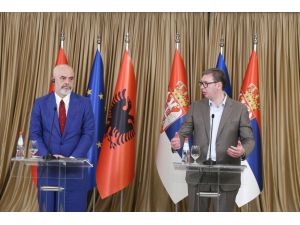
The 7th to the 13th century was the golden age of Muslim learning.
AL-KHWARIZMI – THE ISLAMIC SCHOLAR KNOWN AS THE ‘FATHER OF ALGEBRA
The 7th to the 13th century was the golden age of Muslim learning.
In mathematics they contributed and invented the present arithmetical decimal system and the fundamental operations connected with it: addition, subtraction, multiplication, division, exponentiation, and extracting the root.
They also introduced the ‘zero’ concept to the world. There were many famous mathematicians of Islam, non more famous than the ‘father of Algebra’.
AL-KHWARIZMI (780 – 850 CE)
Muhammad Ibn Musa Al-Khwarizmi, the ‘father of algebra’, was a mathematician and astronomer. It is generally assumed that Al-Khwarizmi was born around 780 CE in the town of Kath in the oasis of Khorzen. Kath is now buried in the sand. Al-Khwarizmi was summoned to Baghdad by Al-Mamun and appointed court astronomer. A Latin translation of a Muslim arithmetic text was discovered in 1857 CE at the University of Cambridge library. Entitled ‘Algoritimi de Numero Indorum’, the work opens with the words: ‘Spoken has Algoritimi. Let us give deserved praise to God, our Leader and Defender’. It is believed that this is a copy of Al-Khowarizmi’s arithmetic text which was translated into Latin in the twelfth century by an English scholar. Al-Khowarizmi left his name to the history of mathematics in the form of Algorism (the old name for arithmetic).
Al-Khowarizmi emphasised that he wrote his algebra book to serve the practical needs of the people concerning matters of inheritance, legacies, partition, lawsuits and commerce.
In the twelfth century Gerard of Cremona and Roberts of Chester translated the algebra of Al-Khowarizmi into Latin. Mathematicians used it all over the world until the sixteenth century.
Source: Muslim Heritage
Bu haber toplam 2129 defa okunmuştur





Türkçe karakter kullanılmayan ve büyük harflerle yazılmış yorumlar onaylanmamaktadır.